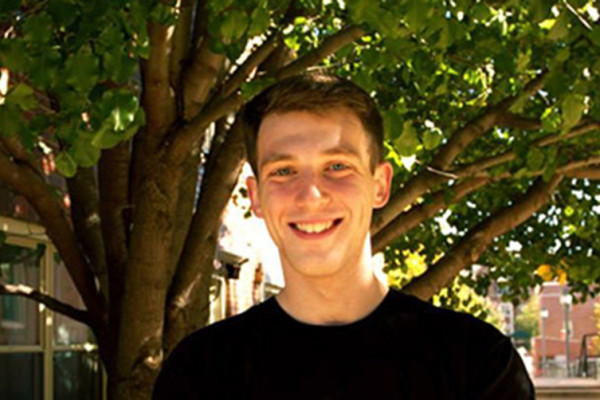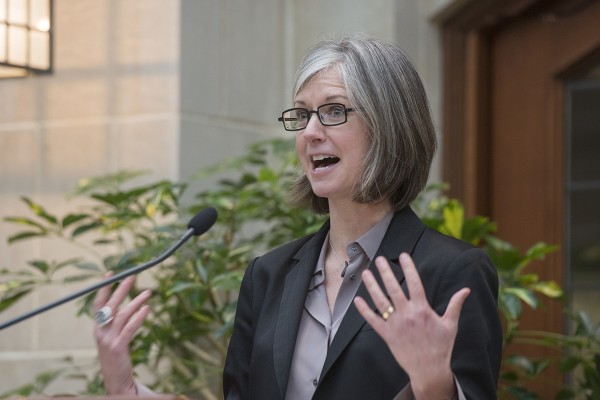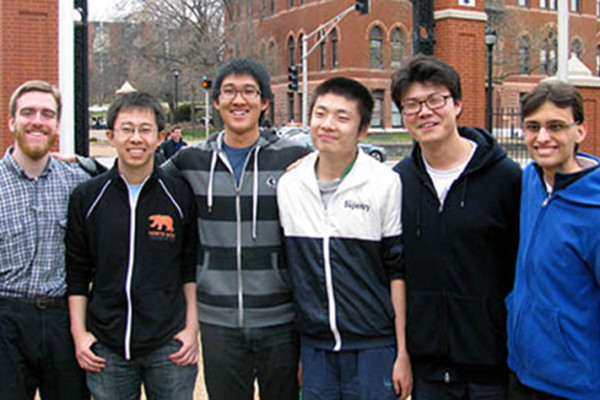Tinianow to receive 2014 Stalker Award
Alex Tinianow will receive this year’s Harrison D.
Stalker Award from the Department of Biology in Arts & Sciences at
Washington University in St. Louis. The award is given annually to a graduating biology
major whose undergraduate career combines outstanding scientific
scholarship with significant contributions in the arts and humanities.
Some immune cells defend only one organ
School of Medicine scientists have uncovered a new way the immune system
may fight cancers and viral infections. The finding could aid efforts to
use immune cells to treat illness.
Healthy economy requires more than innovation, says WUSTL economist
WUSTL economist Steven Fazzari sees the need for building a strong macroeconomy that can establish a healthy demand for the new products and services created by innovators. His research suggests that innovation alone is not sufficient to build a healthy economy.
Leading change from the middle
In his new book, “Leading Change from the Middle,” Jackson Nickerson, PhD, the Frahm Family Professor of Organization & Strategy in Olin Business School at Washington University in St. Louis, offers a practical and novel approach for building extraordinary capability without the traditional use of authority.
Thurtene Carnival delights students, alumni and St. Louisans
Thurtene Carnival drew thousands of revelers to Washington University in St. Louis to enjoy rides, shows and food. The student-run carnival benefited local charity TASK, or Team Activities for Special Kids.
Triple play
Three beloved longtime Brown School faculty — representing 102 years of scholarship, research and collaboration — were elevated to new positions within the faculty April 2 during an installation ceremony in Brown Lounge.
Children’s Discovery Institute awards $3.1 million in pediatric research grants
Scientists researching pediatric lung disease, childhood cancer, malaria and short bowel syndrome will share $3.1 million in new grants from the Children’s Discovery Institute (CDI). The grants, announced earlier this year, will fund 10 research initiatives at the School of Medicine and St. Louis Children’s Hospital.
‘Vision, Energy and Knowledge of Legal Education’
Nancy Staudt, JD, PhD, vice dean for faculty and academic affairs at the University of Southern California Gould School of Law, has been named dean of the School of Law at Washington University in St. Louis, effective May 15, Chancellor Mark S. Wrighton announced. She also will become the Howard and Caroline Cayne Professor of […]
WUSTL students shine in math competitions
A WUSTL team, consisting of sophomore Anthony Grebe, junior Patrick Lopatto and freshman Jongwhan Park, placed 10th out of 430 teams in the prestigious Lowell Putnam Mathematics Competition. WUSTL students also earned the first perfect score in the Missouri Collegiate Mathematics Competition.
Sam Fox School Awards for Distinction April 17
During his 40-year career, Richard Henry Franklin has worked in every facet of architecture and mentored scores of students, architects, planners and community advocates. On Thursday, April 17, Franklin will return to Washington University in St. Louis as one of seven alumni honored at the Sam Fox School’s annual Awards for Distinction dinner.
View More Stories



